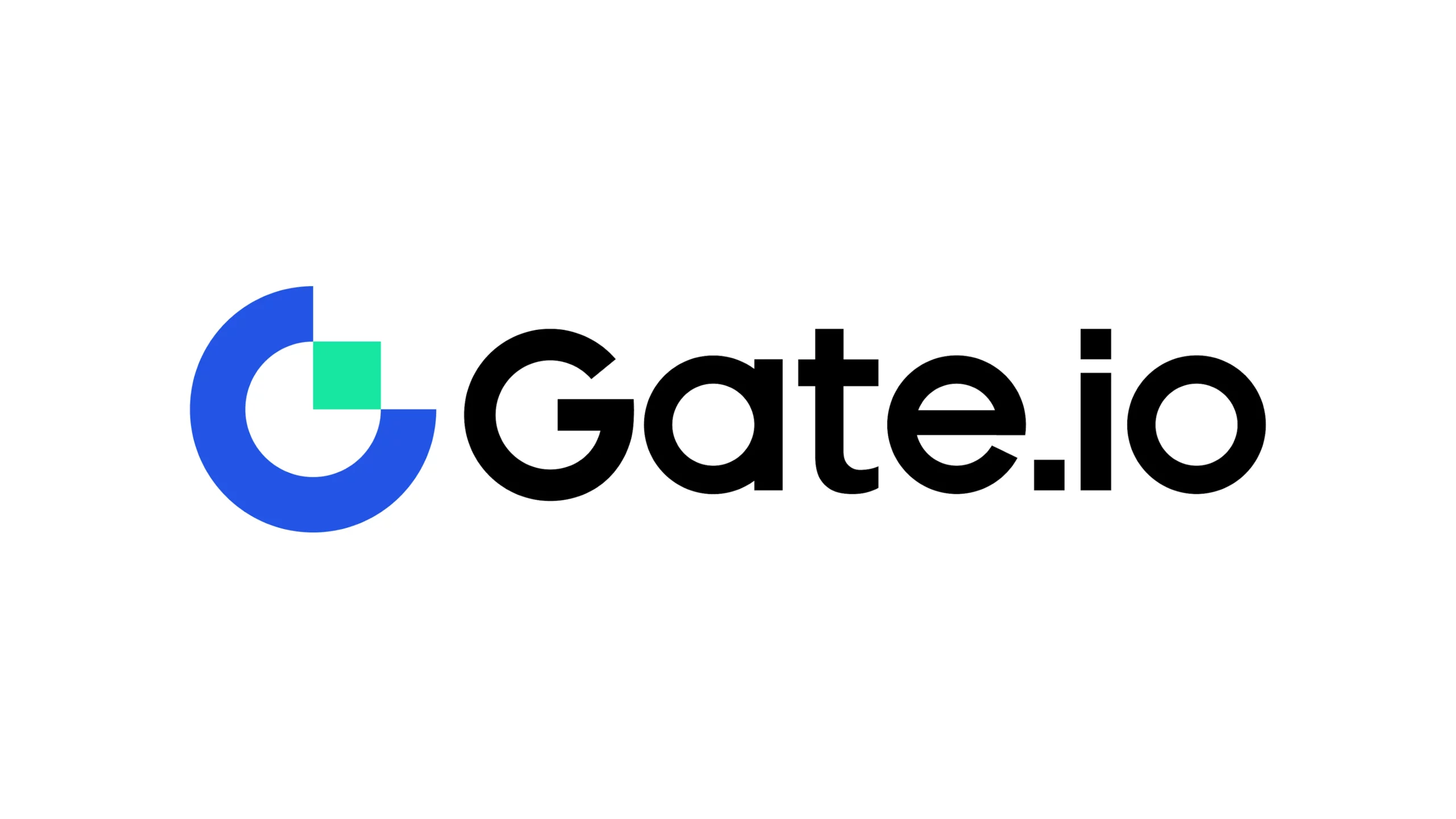Looking for the right cryptocurrency exchange can be tough. Gate.io and Bitget are two popular platforms that traders often compare when making their choice. They both offer various features and services, but they differ in important ways.
When choosing between Gate.io and Bitget in 2025, you should focus on their fee structures, available cryptocurrencies, security features, and user interface. Both exchanges have established themselves in the market, with each platform offering unique advantages that might suit different types of traders.
You’ll want to consider your specific trading needs before making a decision. Are you looking for the widest selection of coins? Do you prioritize lower fees? Or perhaps you need specific trading tools? Understanding these differences will help you select the platform that best aligns with your cryptocurrency trading goals.
Gate.io vs Bitget: At A Glance Comparison
Gate.io and Bitget are popular cryptocurrency exchanges that offer various trading options. Let’s compare their key features to help you choose the right platform.
Trading Volume & Ranking
Both exchanges appear on CoinMarketCap’s top cryptocurrency exchanges list, with rankings based on traffic, liquidity, and trading volumes.
Fee Structure
| Exchange | Trading Fees | Withdrawal Fees |
|---|---|---|
| Gate.io | 0.2% standard | Varies by coin |
| Bitget | 0.1% standard | Varies by coin |
User Experience
Gate.io offers a comprehensive but sometimes complex interface. Bitget provides a more streamlined experience that many beginners find easier to navigate.
Available Cryptocurrencies
Gate.io typically offers more coins and trading pairs than Bitget. You’ll find over 1,400 cryptocurrencies on Gate.io compared to around 500+ on Bitget.
Security Features
Both exchanges implement two-factor authentication and cold storage solutions. Gate.io has a longer operating history since 2013, while Bitget was founded in 2018.
Mobile App Experience
Both platforms offer mobile apps for iOS and Android. Bitget’s app tends to receive higher ratings for user-friendliness and stability.
Customer Support
Support options include ticket systems and live chat on both platforms. Response times vary, with Bitget often receiving better feedback for customer service speed.
Trading Tools
Bitget excels in copy trading features, while Gate.io offers more advanced charting tools and technical analysis options.
Gate.io vs Bitget: Trading Markets, Products & Leverage Offered
Gate.io and Bitget both offer extensive cryptocurrency trading options, but they differ in several key areas.
Available Markets:
- Gate.io supports 1,400+ cryptocurrencies
- Bitget offers 500+ cryptocurrencies
Gate.io provides a wider selection of altcoins and newer tokens, making it better if you’re looking for less common digital assets.
Trading Products:
| Feature | Gate.io | Bitget |
|---|---|---|
| Spot Trading | ✓ | ✓ |
| Futures | ✓ | ✓ |
| Options | ✓ | Limited |
| Copy Trading | Limited | ✓ |
| Margin Trading | ✓ | ✓ |
Bitget stands out with its copy trading platform, allowing you to automatically mirror experienced traders. Gate.io offers more comprehensive options trading.
Leverage Options:
Gate.io provides up to 100x leverage on futures contracts, depending on the cryptocurrency and market conditions.
Bitget offers competitive leverage of up to 125x on some trading pairs, giving you slightly more flexibility for high-risk trading strategies.
Additional Features:
Gate.io includes staking services and cryptocurrency loans to diversify your crypto activities beyond just trading.
Bitget focuses more on user-friendly trading tools and social trading features that help beginners get started more easily.
Your trading style and experience level should guide which platform better suits your needs. If you want more asset variety, Gate.io is preferable. For copy trading and higher leverage options, Bitget might be the better choice.
Gate.io vs Bitget: Supported Cryptocurrencies
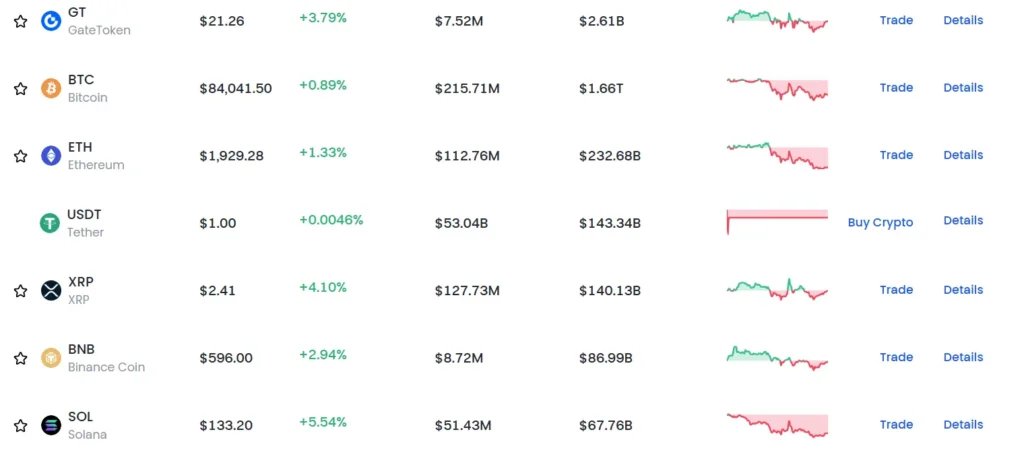
When choosing a crypto exchange, the variety of available cryptocurrencies matters a lot. Gate.io stands out with support for over 3,700 cryptocurrencies and stablecoins, making it one of the most comprehensive exchanges available in 2025.
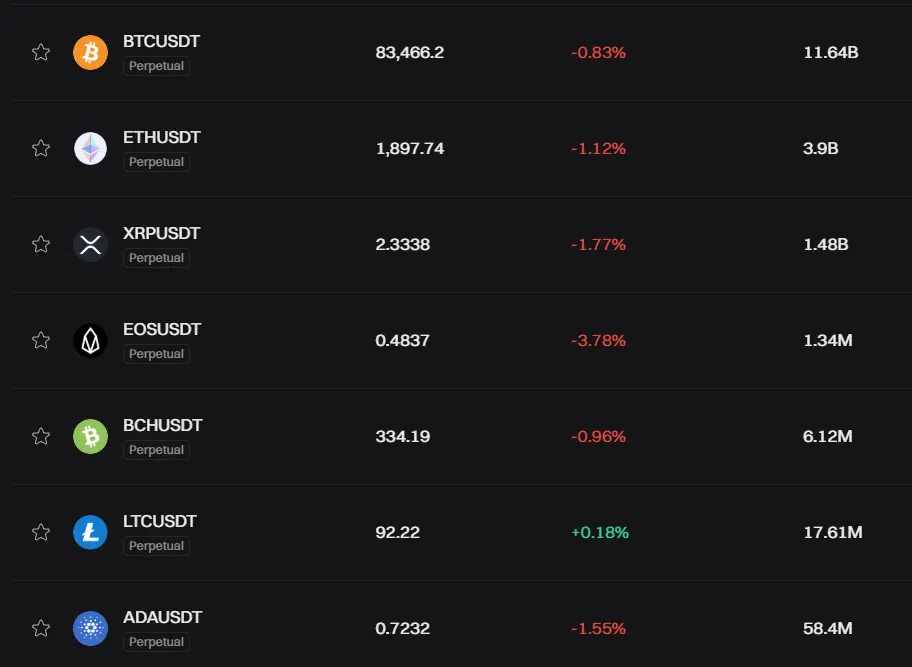
Bitget offers a smaller but still substantial selection of cryptocurrencies. While not matching Gate.io’s extensive catalog, Bitget provides access to all major coins and many altcoins that most traders commonly use.
Here’s a quick comparison of their cryptocurrency offerings:
| Feature | Gate.io | Bitget |
|---|---|---|
| Total cryptocurrencies | 3,700+ | 500+ |
| Bitcoin | ✓ | ✓ |
| Ethereum | ✓ | ✓ |
| Stablecoins | Multiple options | Multiple options |
| New/emerging tokens | Extensive selection | Limited selection |
Gate.io regularly adds new cryptocurrencies to its platform, often listing emerging tokens before they appear on other major exchanges. This can be valuable if you’re looking to invest in newer projects.
Bitget focuses more on providing solid support for established cryptocurrencies with good liquidity. This approach helps ensure stable trading conditions.
You should consider which specific cryptocurrencies you want to trade. If you mainly deal with popular coins like Bitcoin and Ethereum, both exchanges will meet your needs. But if you’re interested in obscure altcoins or brand new tokens, Gate.io likely offers better coverage.
Gate.io vs Bitget: Trading Fee & Deposit/Withdrawal Fee Compared

When choosing between Gate.io and Bitget, understanding their fee structures is crucial for your trading success. Let’s compare how these exchanges stack up in terms of costs.
Trading Fees
| Exchange | Spot Trading | Futures (Maker) | Futures (Taker) |
|---|---|---|---|
| Gate.io | 0.2% | Not specified | Not specified |
| Bitget | 0.1% | 0.02% | 0.06% |
Bitget offers a more competitive spot trading fee at 0.1%, which is half of what Gate.io charges (0.2%). For futures trading, Bitget has a maker fee of 0.02% and a taker fee of 0.06%.
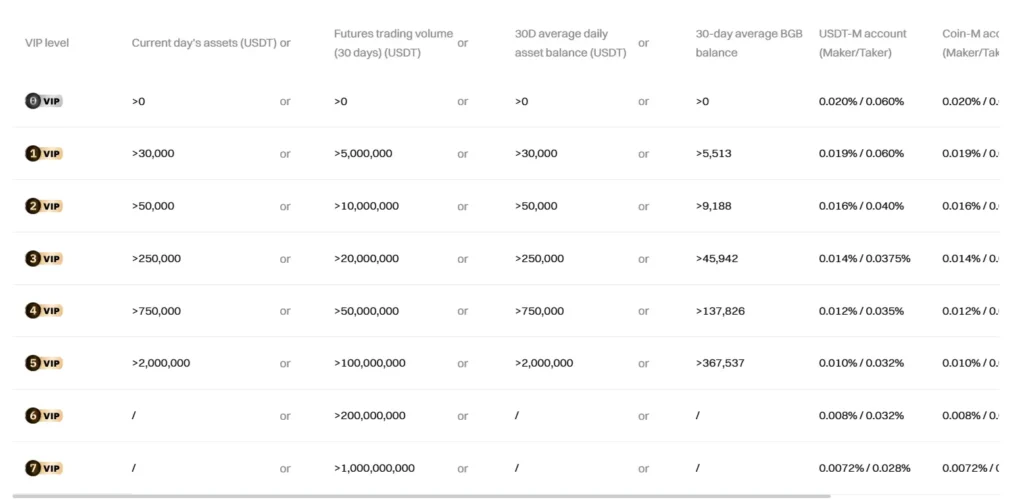
Deposit and Withdrawal Fees
Both exchanges have varying withdrawal fees depending on the cryptocurrency. These fees change based on network congestion and the specific coin you’re withdrawing.
Gate.io provides a transparent fee structure, though the search results don’t specify exact withdrawal amounts. Bitget’s withdrawal fees also vary by cryptocurrency.
Fee Reduction Options
You can often reduce fees on both platforms by:
- Holding the exchange’s native tokens
- Increasing your trading volume
- Using referral codes
Before making your final decision, check the current fee schedules on both platforms as they may have updated since early 2025.
Gate.io vs Bitget: Order Types
When trading on cryptocurrency exchanges, the types of orders available can make a big difference in your trading strategy. Both Gate.io and Bitget offer various order types to help you execute trades effectively.
Gate.io provides a comprehensive range of order options. You can use basic market and limit orders for straightforward trading. For more advanced strategies, Gate.io offers stop-limit, stop-market, and trailing stop orders.
Bitget matches these basic offerings but stands out with its copy trading features. This allows you to automatically follow successful traders’ moves without constantly monitoring the market yourself.
Both platforms support OCO (One-Cancels-Other) orders, which let you set two orders where executing one automatically cancels the other. This is useful for managing risk in volatile markets.
Here’s a quick comparison of order types available on both platforms:
| Order Type | Gate.io | Bitget |
|---|---|---|
| Market | ✓ | ✓ |
| Limit | ✓ | ✓ |
| Stop-Limit | ✓ | ✓ |
| Stop-Market | ✓ | ✓ |
| Trailing Stop | ✓ | ✓ |
| OCO | ✓ | ✓ |
| Copy Trading | Limited | Advanced |
Bitget offers slightly more flexibility for futures trading with their specialized order types. This makes it potentially better for derivative traders who need precise control.
Gate.io excels with conditional orders that can be set based on various market indicators. This gives experienced traders more tools to automate their strategies.
Gate.io vs Bitget: KYC Requirements & KYC Limits
Gate.io has a strict KYC verification process that you must complete before using most platform features. You cannot trade or withdraw funds without verifying your identity on Gate.io.
To complete Gate.io’s KYC process, you need to submit a government-issued ID. This verification step is mandatory, which limits your ability to use the platform anonymously.
Some users report that Gate.io’s KYC services are less efficient compared to other exchanges. The verification process might take longer than expected.
In contrast, Bitget offers more flexibility with its KYC requirements. You can perform basic functions on Bitget without completing full verification.
This difference makes Bitget more accessible if you prefer to maintain privacy while trading cryptocurrency. You can start trading immediately after registration on Bitget.
KYC Comparison Table:
| Feature | Gate.io | Bitget |
|---|---|---|
| KYC Required for Trading | Yes | No |
| KYC Required for Withdrawal | Yes | Partial |
| Verification Document | Government ID | Varies by level |
| Trading Without KYC | Not allowed | Allowed |
| Verification Speed | Slower | Faster |
The withdrawal fees on Gate.io are reportedly higher than some competitors. This factor, combined with strict KYC policies, might affect your choice between the two platforms.
If maintaining privacy is important to you, Bitget offers a better option. For traders who don’t mind identity verification, Gate.io provides comprehensive services once you complete KYC.
Gate.io vs Bitget: Deposits & Withdrawal Options
When choosing between Gate.io and Bitget, payment options play a crucial role in your decision. Both platforms offer multiple ways to fund your account and withdraw your assets.
Gate.io supports a variety of deposit methods including bank transfers and cryptocurrency deposits. You can move funds directly from your bank account or transfer crypto from another wallet.
Bitget also provides several deposit options such as bank transfers and cryptocurrency deposits. The platform makes it easy to get started with your preferred payment method.
Comparison of Payment Methods:
| Feature | Gate.io | Bitget |
|---|---|---|
| Bank Transfers | ✓ | ✓ |
| Crypto Deposits | ✓ | ✓ |
| Credit/Debit Cards | Limited availability | Limited availability |
| Withdrawal Options | Multiple | Multiple |
For withdrawals, both exchanges allow you to take out your funds through similar channels as deposits. Processing times may vary depending on the method you choose.
Security measures for deposits and withdrawals are important on both platforms. You’ll need to complete verification steps before making larger transactions.
Fee structures differ between the platforms, so check the current rates before making deposits or withdrawals. Some methods may have lower fees than others.
Both exchanges regularly update their payment options, so it’s worth checking their websites for the most current information about available methods in your region.
Gate.io vs Bitget: Trading & Platform Experience Comparison
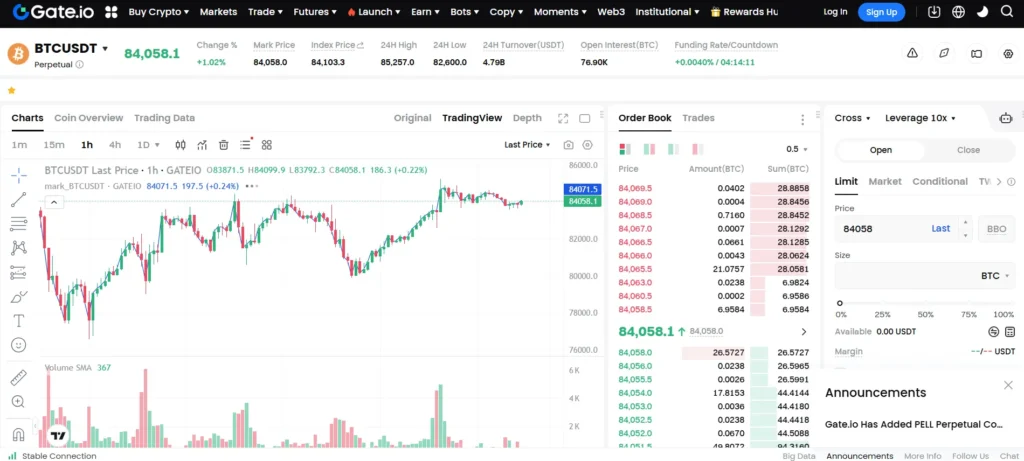
When choosing between Gate.io and Bitget, the trading experience and platform features play a major role in your decision.
User Interface
Bitget offers a more intuitive interface that beginners can navigate easily. Gate.io’s interface is comprehensive but may feel cluttered to new users.
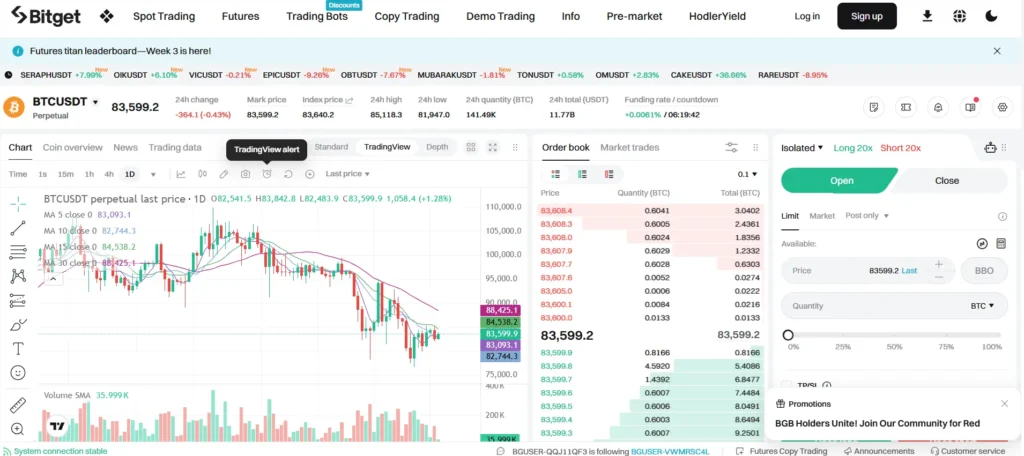
Trading Tools
Both platforms provide advanced charting tools and technical indicators. Bitget stands out with its copy trading feature, allowing you to automatically mirror experienced traders’ moves.
Mobile Experience
- Bitget: Highly rated mobile app with full functionality
- Gate.io: Functional app but occasionally experiences lag issues
Trading Fees
| Exchange | Maker Fee | Taker Fee |
|---|---|---|
| Bitget | 0.1% | 0.1% |
| Gate.io | 0.2% | 0.2% |
Bitget generally offers more competitive trading fees compared to Gate.io.
Order Types
Both platforms support limit, market, and stop orders. Gate.io provides more specialized order types for advanced traders.
Trading Pairs
Gate.io offers more trading pairs (1,000+) compared to Bitget (800+). This gives you more options for diversifying your portfolio.
Platform Speed
Bitget typically processes trades faster with less downtime during high-volume periods. Gate.io occasionally faces slowdowns during market volatility.
Demo Account
Bitget provides a practice mode for beginners to test strategies without risking real money. Gate.io lacks this feature.
Gate.io vs Bitget: Liquidation Mechanism
Both Gate.io and Bitget have liquidation mechanisms to protect trading platforms from extreme market volatility. These systems help manage risk when trading derivatives and using leverage.
Gate.io employs a multi-level risk management system in contract trading. When your position’s margin ratio falls below the maintenance margin requirement, the system will trigger a liquidation. This helps prevent further losses.
Bitget uses a similar approach but with some differences in execution. Their system monitors positions continuously and will issue warnings as your margin ratio approaches dangerous levels.
Key differences in liquidation mechanisms:
| Feature | Gate.io | Bitget |
|---|---|---|
| Warning system | Tiered alerts | Progressive notifications |
| Liquidation threshold | Varies by asset | Generally consistent |
| Partial liquidation | Available on some products | More widely implemented |
| Insurance fund | Used to prevent socialized losses | Similar protection system |
Both platforms offer risk limits that you can adjust based on your trading style. Higher risk limits allow for larger positions but may require more margin.
You can avoid liquidation on either platform by:
- Maintaining sufficient margin
- Setting stop-loss orders
- Using take-profit orders
- Monitoring positions regularly
The forced liquidation mechanism on both exchanges acts as a safeguard for the overall market stability. This prevents negative balances and protects other traders from socialized losses.
Gate.io vs Bitget: Insurance
When choosing a crypto exchange, understanding their insurance policies is crucial for your financial safety. Both Gate.io and Bitget offer some form of insurance protection, but they differ in approach and coverage.
Gate.io maintains a Protection Fund designed to safeguard user assets in case of security breaches or hacks. This fund acts as a safety net to compensate users if unexpected losses occur.
Bitget, on the other hand, provides a $300 million Protection Fund specifically allocated for user protection. This substantial commitment gives many traders peace of mind when using their platform.
Key Insurance Comparisons:
| Feature | Gate.io | Bitget |
|---|---|---|
| Protection Fund | Yes | Yes ($300 million) |
| SAFU Fund | Limited | Yes |
| Cold Wallet Storage | Majority of assets | Majority of assets |
| Insurance Partners | Some third-party coverage | More extensive partnerships |
Both exchanges store most user funds in cold wallets as a primary security measure. This practice helps prevent online hacking attempts and adds an extra layer of protection.
It’s worth noting that neither exchange offers full insurance coverage like traditional banks. Your crypto assets are not protected by government-backed insurance programs such as FDIC in the United States.
Before choosing either platform, you should review their latest insurance policies. These terms can change over time as the exchanges update their security measures and protection offerings.
Gate.io vs Bitget: Customer Support
When choosing a crypto exchange, customer support quality can make a big difference in your trading experience. Both Gate.io and Bitget offer support options, but they differ in availability and effectiveness.
Gate.io provides customer support through several channels including email, tickets, and live chat. Their response times typically range from a few hours to 24 hours depending on query complexity and system load.
Bitget seems to have invested more in their support infrastructure recently. They offer 24/7 live chat support in multiple languages and typically respond within minutes to basic inquiries.
Both platforms maintain extensive knowledge bases with tutorials and FAQs. These self-help resources can solve many common issues without needing direct support.
Response Time Comparison:
| Platform | Live Chat | Email/Ticket | Social Media |
|---|---|---|---|
| Gate.io | 1-6 hours | 12-48 hours | 24-72 hours |
| Bitget | 5-30 min | 6-24 hours | 12-48 hours |
User reviews suggest Bitget’s support team is generally more responsive, especially for urgent issues. However, Gate.io’s support staff often provides more technical and detailed responses for complex problems.
Both platforms experience slower response times during market volatility or major platform updates. At these times, you might wait longer than usual for assistance.
Neither exchange offers phone support, which remains a limitation compared to traditional financial institutions.
Gate.io vs Bitget: Security Features
When choosing between Gate.io and Bitget, security should be your top priority. Both platforms offer strong security measures to protect your crypto assets.
Gate.io implements two-factor authentication (2FA) to add an extra layer of protection to your account. They also use cold storage for most user funds, keeping them offline and away from potential hackers.
Bitget offers similar 2FA protection but adds biometric authentication options on mobile devices. This gives you more ways to secure your account access.
Key Security Features Comparison:
| Feature | Gate.io | Bitget |
|---|---|---|
| Two-factor authentication | ✓ | ✓ |
| Cold storage | ✓ | ✓ |
| Biometric authentication | Limited | Advanced |
| Insurance fund | Available | $300M+ Protection Fund |
| Anti-phishing code | ✓ | ✓ |
Bitget stands out with its larger protection fund, which exceeds $300 million. This fund helps protect users against potential losses from security breaches.
Gate.io offers regular security audits and has maintained a solid security record throughout its operation. Their multi-signature wallet system adds another security layer for withdrawals.
Both platforms provide withdrawal address whitelisting. This feature lets you pre-approve addresses for withdrawals, reducing the risk of funds being sent to unauthorized destinations.
Also Read: Crypto Options vs. Traditional Options
You should enable all available security features regardless of which platform you choose. This includes using strong passwords, enabling 2FA, and being cautious of phishing attempts.
Is Gate.io a Safe & Legal To Use?
Gate.io has built a reputation as a relatively safe cryptocurrency exchange. It employs strong security measures including two-factor authentication (2FA) to protect user accounts from unauthorized access.
The platform offers additional security features like withdrawal whitelists and asset passwords for all users. These tools help prevent unauthorized transactions and protect your funds.
Gate.io maintains 100% proof of reserves, which means they can verify they hold all user funds they claim to have. This transparency adds an important layer of trust.
While Gate.io is generally considered safe, some users report that transfers and deposits take longer than on other exchanges. Transaction fees may also be slightly higher compared to alternatives.
The exchange operates legally in many jurisdictions, though availability varies by country. You should check if Gate.io is permitted in your location before signing up.
For maximum security on Gate.io:
- Always enable 2FA
- Use a unique, strong password
- Set up withdrawal whitelists
- Consider using the asset password feature
- Keep most of your crypto in cold storage if you’re not actively trading
Gate.io is particularly well-suited for hodlers and position traders who value security over transaction speed. The exchange offers a good balance of security features while providing access to many cryptocurrencies.
Is Bitget a Safe & Legal To Use?
Bitget is generally considered a safe and legal crypto exchange. It operates with proper licensing, which means it has gone through regulatory processes to meet security standards.
The platform implements strong security measures to protect users. These include cold storage for funds, multi-factor authentication, and regular security audits by external parties.
One standout feature is Bitget’s Protection Fund. As of 2025, this fund contains $350 million (some sources mention $300 million USDT) dedicated to covering potential losses from security incidents.
Bitget prioritizes user asset security through advanced protection systems. This commitment to security helps build trust with customers who are concerned about the safety of their investments.
However, some search results mention concerns about wallet security. One comment suggests “your funds are not secured with Bitget wallet” and mentions issues with scammers. This highlights the importance of using additional security features.
For maximum safety on Bitget:
- Enable multi-factor authentication
- Use strong, unique passwords
- Be cautious of phishing attempts
- Verify official contact information
The platform is user-friendly according to reviews, making it accessible for both beginners and experienced traders.
Before using Bitget, verify it’s legal in your jurisdiction as crypto regulations vary by country.
Frequently Asked Questions
Many traders have questions about the differences between Gate.io and Bitget when choosing a crypto platform. Below are answers to common questions about these exchanges based on the latest information as of March 2025.
What are the key differences in security measures between Gate.io and Bitget?
Both exchanges prioritize security but implement different measures. Gate.io uses multi-signature wallets and stores most assets in cold storage, with regular security audits by third parties.
Bitget offers two-factor authentication, anti-phishing codes, and an insurance fund covering up to $300 million in assets. This fund provides additional protection compared to Gate.io’s standard security protocols.
The platforms have different approaches to account verification, with Bitget generally offering a smoother KYC process according to user reviews.
How do the fee structures of Gate.io and Bitget compare?
Gate.io typically charges trading fees ranging from 0.2% for makers to 0.2% for takers, with discounts available for higher trading volumes and GT token holders.
Bitget offers slightly lower standard fees, starting at 0.1% for makers and 0.1% for takers. Their VIP program provides more substantial fee reductions for high-volume traders.
Withdrawal fees vary by cryptocurrency on both platforms, but Bitget generally offers more competitive rates for popular coins like Bitcoin and Ethereum.
Can users from the USA legally trade on Gate.io or Bitget, and are there any restrictions?
US traders face restrictions on both platforms. Gate.io operates Gate.us specifically for American users, offering limited cryptocurrencies compared to the international version.
Bitget does not officially support US customers. American IP addresses are typically blocked during registration, and verification requires non-US documentation.
Users from restricted regions sometimes use VPNs to access these platforms, but this violates terms of service and may result in account freezes or fund locks.
What are the unique features that set Gate.io apart from Bitget?
Gate.io offers a wider selection of cryptocurrencies, with over 1,400 trading pairs compared to Bitget’s approximately 500 pairs. This makes Gate.io better for trading obscure altcoins.
Gate.io’s startup platform allows users to participate in early token sales and includes a copy trading feature that lets beginners mirror experienced traders’ strategies.
Gate.io also provides an NFT marketplace and DeFi services that are more developed than what Bitget currently offers.
How does the trading volume and liquidity on Gate.io compare to that of Bitget?
As of March 2025, Bitget has surpassed Gate.io in daily trading volume, averaging about $8-10 billion compared to Gate.io’s $5-7 billion.
Bitget shows better liquidity for major trading pairs like BTC/USDT and ETH/USDT, resulting in lower slippage for large trades on these popular pairs.
Gate.io maintains superior liquidity for many smaller altcoins due to its larger selection of trading pairs, making it preferable for traders focusing on less common cryptocurrencies.
What are the available customer support options for Gate.io and Bitget, and which provides better service?
Gate.io offers support through email tickets, live chat, and community forums. Response times typically range from 12-24 hours for standard inquiries.
Bitget provides 24/7 live chat support, email tickets, and maintains active Telegram and Discord channels. Their average response time is 4-8 hours, significantly faster than Gate.io.
User reviews consistently rate Bitget’s customer service higher, citing quicker resolution times and more helpful responses, especially for account verification and deposit issues.
Bitget vs Gate.io Conclusion: Why Not Use Both?
Both Bitget and Gate.io offer strong features for cryptocurrency traders in Canada. Each platform has unique strengths that might appeal to different aspects of your trading strategy.
Bitget stands out with favorable fee structures and comprehensive trading tools. The platform is known for its user-friendly interface, making it accessible for traders at various experience levels.
Gate.io offers diverse cryptocurrency options and extensive trading features. Their technical analysis tools can be particularly valuable if you’re looking to make data-driven trading decisions.
Why limit yourself to just one platform? Using both exchanges could give you the best of both worlds. You might use Bitget for its lower fees on certain trades while leveraging Gate.io’s wider selection of altcoins.
However, be cautious with any exchange. Some users have reported issues with customer support on Gate.io, including delayed responses to help tickets. Always start with smaller amounts when trying a new platform.
Consider your specific needs as a trader:
| If You Need | Consider |
|---|---|
| Lower fees | Bitget |
| More crypto options | Gate.io |
| User-friendly interface | Bitget |
| Advanced trading tools | Both platforms |
Remember to complete your own research before committing significant funds. The crypto exchange landscape changes rapidly, and what works best for your trading style might be a combination of platforms rather than a single solution.
Compare Gate.io and Bitget with other significant exchanges

